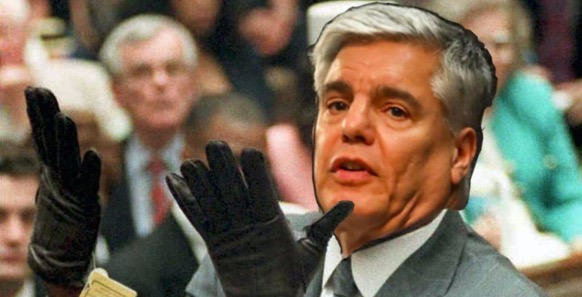In a startling revelation, The Spoke has confirmed with multiple sources close to the situation that Robin Forman, the Dean of Emory College of Arts and Sciences, does not exist. Emory President James Wagner was deceived by an elaborate Twitter hoax that led him to believe that Forman existed.
This discovery has shaken the Emory Community, where Forman had previously risen to the status of a folk hero. Forman, in the feel-good story of the fall semester, had bravely overcome immense resistance from a nefarious alliance formed between Emory faculty members and the student body in order to enact the necessary removal of certain resource-hogging academic departments.
While an insignificant and foolish portion of the Emory community objected, Forman was widely hailed as a champion for taking a stand against the liberal arts. Even the economics department, a supposed victim of the academic cuts, came to love the removal of their graduate department.
“Why did we ever have graduate students in the first place?” asked Economics professor Keith Armstrong, “You know, I’m willing to bet that other top universities will follow our trail-blazing example.”
The news that Dean Forman had been en-tirely fictional has caused many to question the role of Wagner in the historic department cuts. Philosophy professor James Elway has even gone so far as to allege that Wagner fabricated Forman with the intent of improving his own reputation.
“It’s apparent that our university president conjured up Dean Forman with the intention of making himself appear competent,” wrote Elway in an editorial to The Emory Wheel , “And, to his credit, the ploy was a complete success. He’s great.”
A source, which spoke with The Spoke with the agreement of total anonymity, reported that Wagner’s Twitter relationship with Forman began in June of 2010. Their communication reportedly began with a quick flurry of Twitter correspondences about the trending hashtag, #3drunkwords. Within the next month, Wagner had hired Forman as the Dean of Emory College.
For over two years, the ruse went on without a hitch. Some employees in the administration office thought it peculiar that they never once saw Forman in person, but opted not to ask. Forman’s office door was always closed.
“I once asked the secretary if I could speak with the Dean,” recalled one employee, “I was handed a phone and the voice on the other end sounded – I want to say – like a Christopher Walken soundboard.”
“But I never thought that Dean Forman was completely imaginary,” continued the employee. “He retweeted me at least a dozen times. I felt that we had a good thing going.”





Be First to Comment